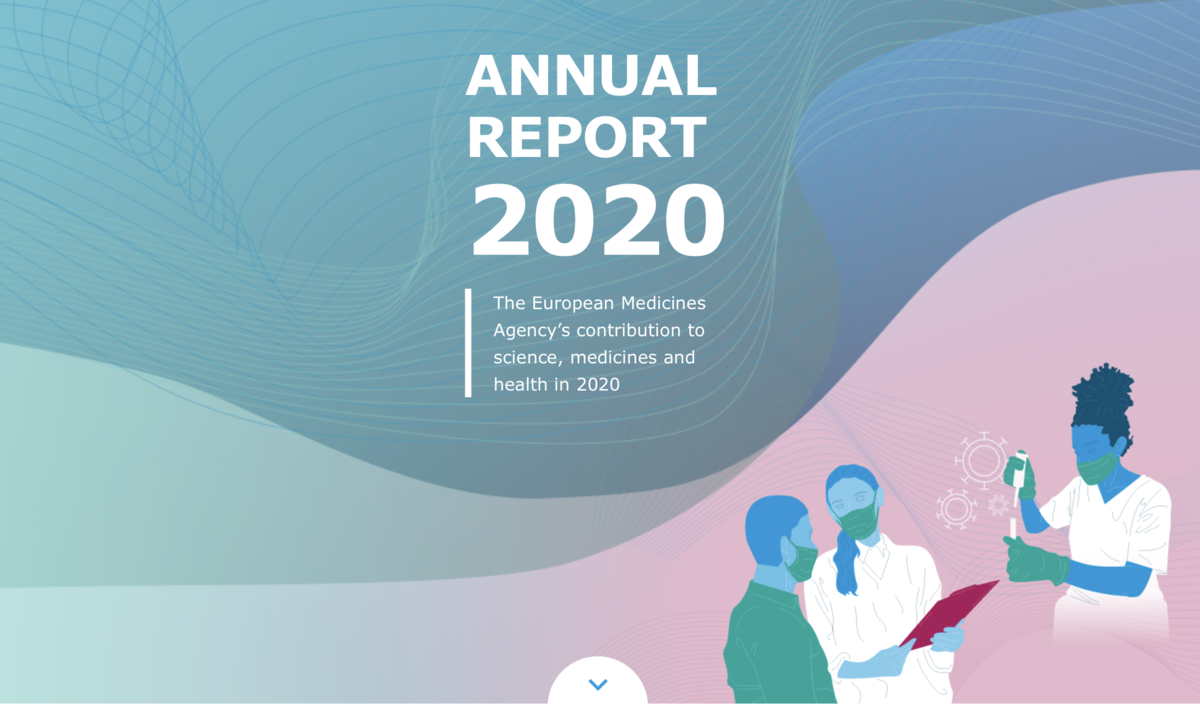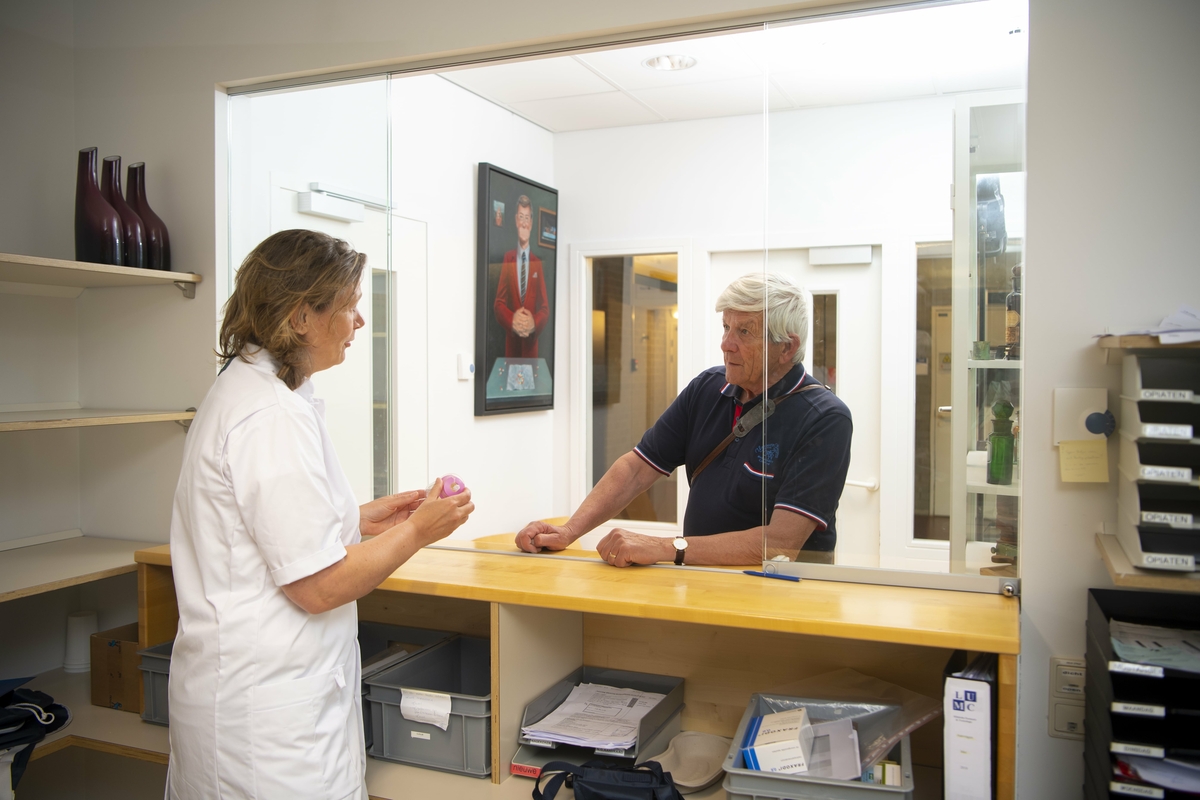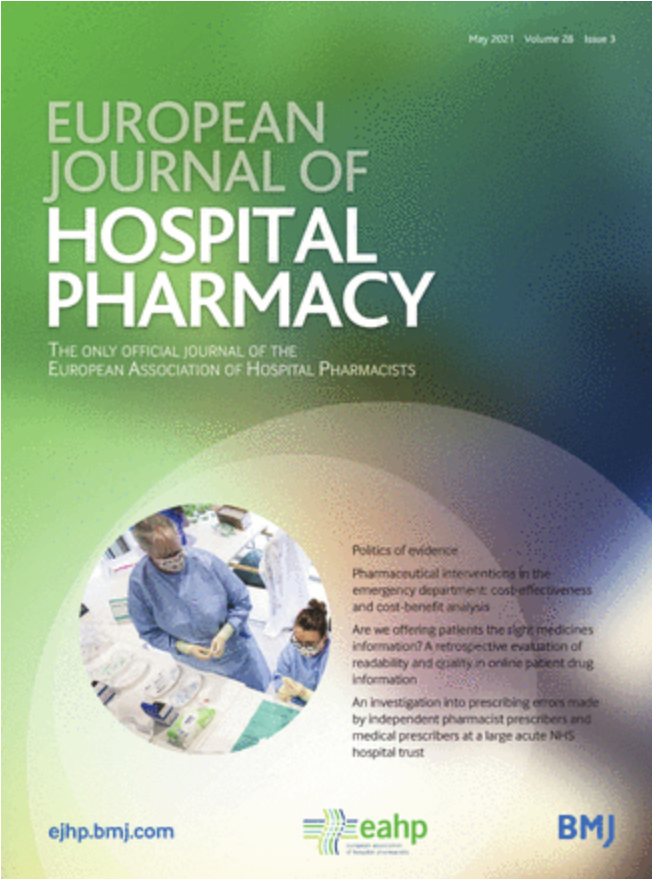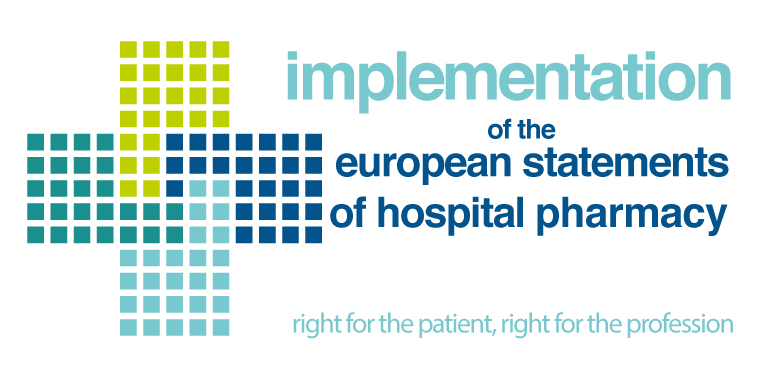The EAHP EU Monitor is a regular round up of news relevant to hospital pharmacy in Europe.
New EAHP Position Papers on Access to Medicines and Hospital Pharmacy Specialisation
 In mid-June, the members of the European Association of Hospital Pharmacists (EAHP) came together for their annual General Assembly. Like every year, EAHP’s 35 member associations discussed and approved new position papers developed for the profession. This year’s exchanges at the General Assembly focused on two topics important for patient care, namely access to medicines and the hospital pharmacy specialisation.
In mid-June, the members of the European Association of Hospital Pharmacists (EAHP) came together for their annual General Assembly. Like every year, EAHP’s 35 member associations discussed and approved new position papers developed for the profession. This year’s exchanges at the General Assembly focused on two topics important for patient care, namely access to medicines and the hospital pharmacy specialisation.
Hospital pharmacists are the key stakeholders responsible for medication management and safety in the hospital environment, covering both in- and out-patient services and supporting the seamless transition of care for patients moving within the healthcare system. Hospital pharmacy specialisation is important to provide the best treatment for all patients since it ensures that hospital pharmacists are prepared and able to operate in a complex hospital setting and work collaboratively within multi-disciplinary healthcare teams. The position centres around advancing the profession by harmonising the recognition of hospital pharmacy education, enhancing the role of the hospital pharmacist and preparing the profession for future challenges. To make a difference in medication by advancing the hospital pharmacy profession, EAHP
- calls on the European Commission and the Member States to assist the Association in setting up a CTF through the adoption of a delegated act;
- touches on the need for Member States to recognise the changing role of the hospital pharmacists and further foster their implementation; and,
- underlines the importance to further promote the uptake of such cross-sector tools inter-sector communication, coordination and multi-disciplinary collaboration in all healthcare facilities should be strengthened.
To adequately address future challenges linked to the ageing society, changing healthcare needs and other unknown factors, like future pandemics, EAHP also urges that Member States invest in better workforce planning for the hospital pharmacy profession, including the availability of hospital pharmacy services for all patients of each hospital.
Ensuring that patients receive the medication they need to improve their health and to prevent and cure diseases is the key topic of EAHP’s Position Paper on Access to Medicines. Given that growing healthcare expenditure has become a problem for many European countries that also affects patients who are increasingly faced with avoidable accessibility and affordability issues, EAHP has chosen to look at the barriers to access and enablers that could help improve it.
Lack of purposeful procurement practices, national pricing and reimbursement policy choices jeopardising patients’ adequate access, medicine shortages and the unavailability in certain markets that are leading to inequity between Member States are the main barriers identified in the position. For the provision of affordable medicines of good quality that are given in a timely manner to patients, EAHP advocates for breaking down these barriers to treatment access and calls for uptake of enablers that promote and safeguard the access of patients to both new life-saving medicines and older, essential medicines must be increased. Enablers mentioned refer to health technology assessments (HTAs), including common reports at EU level, collaboration and best practice sharing on pricing and reimbursement, increasing the use of prevention measures and fostering innovation and research
To achieve an equilibrium between the barriers and the enablers to treatment access, the following has been put forward by EAHP:
- Recommendation to leverage and utilise the expertise of the hospital pharmacist in pharmacoeconomics and the assessment of drug effectiveness within value-based evaluation approaches. Additionally, the implementation of the forthcoming HTA Regulation should be used for the expansion of healthcare professional input in HTAs at both European and national level.
- Support for EURIPID and the suggestion that the tool developed by this collaboration should not only be applied on its own but in conjunction with other policy measures, including transparency.
- Collaboration between hospital managers and hospital pharmacists to increase the uptake of risk assessments in hospitals.
- Investments to support the development of innovative proposals and the encouragement of practice-based research projects to investigate new fields of infectious disease control such as immunotherapy and to optimise the cost-effectiveness of systems for surveillance on antibiotic use and resistance.
In relation to the developments linked to the European Health Union aided by the implementation of the Pharmaceutical Strategy, EAHP underlined its commitment to working together with the European institutions and other stakeholders by giving a voice to access issues that otherwise might be forgotten.
Read the Position Paper on Access to Medicines HERE
Read the Position Paper on Hospital Pharmacy Specialisation HERE
EMA’s annual report for 2020 is online
 The European Medicines Agency (EMA) has published its 2020 annual report that provides an overview of the Agency’s major achievements and contributions to public health in Europe. The digital report outlines the most important highlights of the evaluation and monitoring of human and veterinary medicines and provides a high-level overview of key figures. Specific focus has been put on the response of the regulatory network’s response to the COVID-19 pandemic. An interactive timeline of EMA’s main activities in 2020 allows users to explore each topic in more depth, for example through additional audio-visual materials, infographics, videos and documents.
The European Medicines Agency (EMA) has published its 2020 annual report that provides an overview of the Agency’s major achievements and contributions to public health in Europe. The digital report outlines the most important highlights of the evaluation and monitoring of human and veterinary medicines and provides a high-level overview of key figures. Specific focus has been put on the response of the regulatory network’s response to the COVID-19 pandemic. An interactive timeline of EMA’s main activities in 2020 allows users to explore each topic in more depth, for example through additional audio-visual materials, infographics, videos and documents.
In 2020, EMA and its partners within the European medicines regulatory network had to adapt processes to ensure a rapid response to the COVID-19 pandemic whilst maintaining core regulatory activities to protect public and animal health in the European Union. The report details EMA’s work during the pandemic and highlights key lessons learnt in 2020. Additional topics covered by the report include the Agency’s response to other public health challenges, such as antimicrobial resistance, and also EMA’s relocation to a new permanent headquarters in Amsterdam, and the preparations for Brexit. The report also describes how the Agency marked its 25th anniversary and explains the steps EMA took to ensure that it is fit to tackle future scientific and technological challenges and take on new responsibilities. As usual, the second chapter of the report contains core statistics that illustrate the main outcomes of the Agency’s regulatory activities, as well as interesting trends and changes observed in recent years.
Read the EMA annual report HERE
Access to medicines plays a central role in a new EP study
 Based on a request from the European Parliaments Committee on the Environment, Public Health and Food Safety (ENVI) the Policy Department for Economic, Scientific and Quality of Life Policies situated in the Directorate-General for Internal Policies conducted a detailed study looking at the access to medicinal products. Based on the findings it was concluded that important steps were taken since the adoption of the Resolution on options for improving access to medicinal products in 2017. Further advancements are however needed to guarantee full access for all patients and EU citizens.
Based on a request from the European Parliaments Committee on the Environment, Public Health and Food Safety (ENVI) the Policy Department for Economic, Scientific and Quality of Life Policies situated in the Directorate-General for Internal Policies conducted a detailed study looking at the access to medicinal products. Based on the findings it was concluded that important steps were taken since the adoption of the Resolution on options for improving access to medicinal products in 2017. Further advancements are however needed to guarantee full access for all patients and EU citizens.
Specific focus was put on the implementation of the 58 recommendations for improving access to medicines put forward by the European Parliament in its 2017 Resolution. These called for action across many different areas of policy, ranging from actions to promote competitive and fair pharmaceutical markets, to actions aimed at directing more pharmaceutical innovation to areas of unmet need and increased coordination between Member States to align policies. The study analysis the progress made in the last four years with a focus on the following: patients, markets, research, development and innovation, health systems, the regulatory framework and developing countries. It factors in the key actions taken between 2017 and 2021 and also looks at the influence of the COVID-19 pandemic.
In conclusion, it can be said that the European Commission Member States have taken many important steps towards improving access to medicines by for example working on medicines shortages, health technology assessments and the revision of existing legislation. In particular, the introduced or proposed legislative changes are aimed at directing more innovation to areas of unmet need whilst placing greater obligations on product developers to ensure affordability and availability of products that benefit from innovation incentives. Given that a large majority of the actions discussed by the report were only introduced within the last 18 months or are still in preparation it has been underlined that their full effect cannot be assessed yet.
Access the study results HERE
Commission Communication: Learnings from the pandemic
 In mid-June, the European Commission published a Communication looking at the early lessons learnt from the COVID-19 pandemic over the past 18 months and building on them to improve action at EU and national level. The information included in the communication will be used during this week’s discussion with heads of state and followed up with concrete deliverables in the second half of 2021.
In mid-June, the European Commission published a Communication looking at the early lessons learnt from the COVID-19 pandemic over the past 18 months and building on them to improve action at EU and national level. The information included in the communication will be used during this week’s discussion with heads of state and followed up with concrete deliverables in the second half of 2021.
Ten improvement areas have been identified in relation to enhancing the EU’s future crisis preparedness. These cover the following aspects:
- Faster detection and better responses require robust global health surveillance and an improved European pandemic information gathering system. The EU should lead efforts to design a new robust global surveillance system based on comparable data. A new and improved European pandemic information gathering system will be launched in 2021.
- Clearer and more coordinated scientific advice would facilitate policy decisions and public communication. The EU should appoint a European Chief Epidemiologist and a corresponding governance structure by the end of 2021.
- Enhanced preparedness requires constant investments, scrutiny and reviews. The European Commission should prepare an annual State of Preparedness Report.
- Emergency tools need to be ready faster and easier to activate. The EU should establish a framework for the activation of an EU Pandemic State of Emergency and a toolbox for crisis situations.
- Coordinated measures should become a reflex for Europe. The European Health Union should be adopted swiftly before the end of the year and coordination and working methods should be strengthened between institutions.
- Public-private partnerships and stronger supply chains are needed to ensure the flow of critical equipment and medicines. A Health Emergency Preparedness and Response Authority (HERA) should be operational by early 2022 and a Health Important Project of Common European Interest should be set up as soon as possible to enable breakthrough innovation in pharmaceuticals. The EU FAB facility should ensure that the EU has enough “ever-warm” capacity to produce 500–700 million vaccine doses per year, with half of these doses to be ready in the first 6 months of a pandemic.
- A pan-European approach is essential to making clinical research faster, broader and more effective. A large-scale EU platform for multi-centre clinical trials should be established.
- The capacity to cope in a pandemic depends on continuous and increased investment in health systems. Member States should be supported to strengthen the overall resilience of health care systems as part of their recovery and resilience investments.
- Pandemic prevention, preparedness and response is a global priority for Europe. The EU should continue leading the global response, notably through COVAX, and strengthening the global health security architecture by leading on strengthening the World Health Organization. Pandemic preparedness partnerships with key partners should also be developed.
- A more coordinated and sophisticated approach to tackling misinformation and disinformation should be developed.
Read the communication HERE

EJHP: Clinical frailty and polypharmacy in older emergency critical care patients: a single-centre retrospective case series
The original research published in the online edition of the European Journal of Hospital Pharmacy (EJHP) describes the extent and relationship between clinical frailty and polypharmacy in a cohort of older emergency general critical care patients, and the effect of the critical care pathway on patient polypharmacy measures. A retrospective evaluation was undertaken in all patients ≥70 years of age, admitted as emergencies to the general critical care units of a single large UK academic hospital, over a 2-year period (March 2016 to February 2018) (n=762). In conclusion, the authors found that polypharmacy and frailty were very common in this UK single-centre cohort of older emergency critical care patients. There was a significant association between the degree of polypharmacy and frailty score. The critical care pathway created extensive changes in patient medication therapy.
Read the article HERE
 [COVID-19 Updates]
[COVID-19 Updates]
EAHP’s COVID-19 Resource Centre
To assist its member associations and individual hospital pharmacists in this critical time with the provision of the best possible care for patients, EAHP has decided to gather and make available information on COVID-19 relevant for the hospital pharmacy profession.
Access the Resource Centre HERE
Irish Health Service Executive (HSE) – Interim Guideline for the Management of Covid-19 Infection in Paediatric Patients
Guideline for children outside of the paediatric intensive care unit (PICU) setting.
Access the guideline HERE
Indian Council of Medical Research (ICMR) – National Institute for Research in Reproductive Health
Guidance for Management of Pregnant Women in COVID-19 Pandemic
Guidance for healthcare facilities providing obstetric care for pregnant patients with confirmed novel coronavirus disease (COVID-19) or pregnant persons under investigation (PUI) in obstetric healthcare settings.
Access the guidance HERE
American Journal of Health-System Pharmacy – Optimization of critical care pharmacy clinical services: A gap analysis approach
The article analysis critical care pharmacy clinical services and provides suggestions for optimization.
Read the article HERE
Hospital Pharmacy – In Vitro Assessment for Dose Preparation and Simulated Administration of Azithromycin Suspensions via Enteral Feeding Tubes
The aim of this study was an in vitro assessment for the dose preparation and simulated administration of azithromycin suspensions, prepared from tablets and capsules, via nasogastric feeding tubes (NGT).
Read the article HERE
Exciting news about our Statements!

A new commented version of the European Statements of Hospital Pharmacy was approved at the 51st EAHP General Assembly. The Statements represent what we believe every European health system should aim for in the delivery of hospital pharmacy services, thus for EAHP is important to make sure that the Statements are up to date and easily understood by all stakeholders. The commented version of the Statements will be published in September and will include comments to clarify and further explain the meaning of some of the European Statement. Stay tuned for more!
___________________________________________________________________________________

Consultations
European Commission – Public Consultation: Digital health data and services – the European health data space
To ensure that all possible views are considered in the design of a legal framework for a European Health Data Space (EHDS), the European Commission invites all interested individuals and stakeholders to share their views and experiences. Your contribution can help provide important insights, opinions and evidence to support the impact assessment accompanying the EHDS proposal on the problems to be tackled, the policy options to be considered and their likely impacts.
Deadline – 26 July 2021
Access the consultation HERE
European Commission – Public Consultation: Cross-border healthcare – evaluation of patients’ rights
The Directive on patients’ rights in cross-border healthcare (2011/24/EU) aims to facilitate access to safe and high quality healthcare in another EU country. The European Commission invites all interested individuals and stakeholders to share their views and experience in seeking planned healthcare across the EU or in EU cooperation in the area of rare diseases.
Deadline – 27 July 2021
Access the consultation HERE
European Commission – Public Consultation: Medicines for children & rare diseases – updated rules
This initiative will explore several options to address the shortcomings identified in the evaluation of the Regulations on medicines for children and rare diseases, in view of a revision of the existing legislation. With this public consultation, citizens and stakeholders are invited to share their views and experiences on the main obstacles they are facing concerning treatments for rare diseases and children, on possible ways to overcome these obstacles and on how to make the current legislation future-proof.
Deadline – 30 July 2021
Access the consultation HERE























 In mid-June, the members of the European Association of Hospital Pharmacists (EAHP) came together for their annual General Assembly. Like every year, EAHP’s 35 member associations discussed and approved new position papers developed for the profession. This year’s exchanges at the General Assembly focused on two topics important for patient care, namely access to medicines and the hospital pharmacy specialisation.
In mid-June, the members of the European Association of Hospital Pharmacists (EAHP) came together for their annual General Assembly. Like every year, EAHP’s 35 member associations discussed and approved new position papers developed for the profession. This year’s exchanges at the General Assembly focused on two topics important for patient care, namely access to medicines and the hospital pharmacy specialisation.  The European Medicines Agency (EMA) has published its 2020 annual report that provides an overview of the Agency’s major achievements and contributions to public health in Europe. The digital report outlines the most important highlights of the evaluation and monitoring of human and veterinary medicines and provides a high-level overview of key figures. Specific focus has been put on the response of the regulatory network’s response to the COVID-19 pandemic. An interactive timeline of EMA’s main activities in 2020 allows users to explore each topic in more depth, for example through additional audio-visual materials, infographics, videos and documents.
The European Medicines Agency (EMA) has published its 2020 annual report that provides an overview of the Agency’s major achievements and contributions to public health in Europe. The digital report outlines the most important highlights of the evaluation and monitoring of human and veterinary medicines and provides a high-level overview of key figures. Specific focus has been put on the response of the regulatory network’s response to the COVID-19 pandemic. An interactive timeline of EMA’s main activities in 2020 allows users to explore each topic in more depth, for example through additional audio-visual materials, infographics, videos and documents. Based on a request from the European Parliaments Committee on the Environment, Public Health and Food Safety (ENVI) the Policy Department for Economic, Scientific and Quality of Life Policies situated in the Directorate-General for Internal Policies conducted a detailed study looking at the access to medicinal products. Based on the findings it was concluded that important steps were taken since the adoption of the Resolution on options for improving access to medicinal products in 2017. Further advancements are however needed to guarantee full access for all patients and EU citizens.
Based on a request from the European Parliaments Committee on the Environment, Public Health and Food Safety (ENVI) the Policy Department for Economic, Scientific and Quality of Life Policies situated in the Directorate-General for Internal Policies conducted a detailed study looking at the access to medicinal products. Based on the findings it was concluded that important steps were taken since the adoption of the Resolution on options for improving access to medicinal products in 2017. Further advancements are however needed to guarantee full access for all patients and EU citizens.  In mid-June, the European Commission published a Communication looking at the early lessons learnt from the COVID-19 pandemic over the past 18 months and building on them to improve action at EU and national level. The information included in the communication will be used during this week’s discussion with heads of state and followed up with concrete deliverables in the second half of 2021.
In mid-June, the European Commission published a Communication looking at the early lessons learnt from the COVID-19 pandemic over the past 18 months and building on them to improve action at EU and national level. The information included in the communication will be used during this week’s discussion with heads of state and followed up with concrete deliverables in the second half of 2021.
 [COVID-19 Updates]
[COVID-19 Updates]
